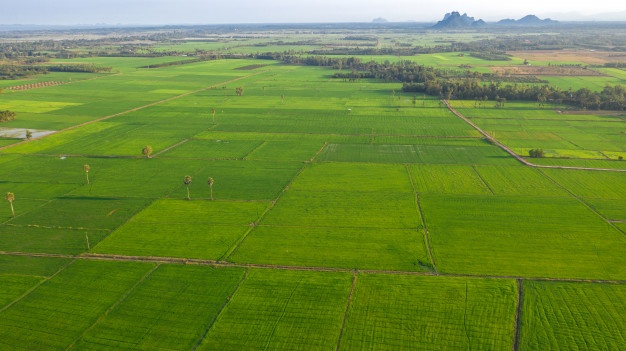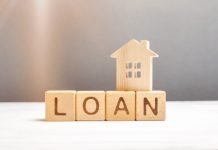The most traditional form of homeownership is to own both a house and the land upon which it is built. Those who can’t afford houses, or who do not want to be bothered with outside maintenance and upkeep, may purchase apartments or townhouses.
However, there is another homeownership option: buying only the home and leasing the land it occupies.
Purchasing a home in a leased land community enables you to own a home that you otherwise wouldn’t be able to afford. However, this type of purchase lacks some of the benefits of traditional homeownership and has other significant drawbacks. Would this unusual ownership setup work for you?
The Basics
With a trained eye, you can usually spot a leased-land property, even when it is not explicitly stated. Keywords to look for include “manufactured home” and “leasehold interest.”
Exterior features of the home might be described in terms, such as “association pool” or “association tennis courts.” Also, the price of leased property tends to be far below market value.
For example, if the going rate for a traditional three-bedroom, two-bathroom is around Kes 5,000,000, a comparable home on leased land may only cost Kes 4,500,000. A leased property home may also have unusually upscale features for its price.
Steep homeowners’ association (HOA) fees also indicate that a listing may be for a leased-land property. A normal HOA fee might be around Kes 2,500 per month, while an HOA fee on a leased-land property might be Kes 9,000 per month.
Another giveaway is that if you look at a satellite map of the neighbourhood where the home is located, you may notice that the homes are closer together than usual and are extremely similar to one another.
Real estate listings don’t always list a leased-land property. Sometimes, key information is left out of a real estate listing because of an agent’s sloppiness, or because the agent or seller is trying to hide something.
Investigate the hidden facts, and never purchase a leased-land property without thoroughly understanding the unusual features of this type of homeownership.
Types of Leased-Land Properties
There are several types of residential leased-land properties, and the most common type varies by region. In Nairobi and Mombasa, there are leasehold apartments. In areas with government reserves, you may be able to purchase property on leased reservation land.
In where even homes in the suburbs far exceed prices the average person can afford, there are leased-land properties in suburban areas.
Leased-land properties exist in other areas, but because leasing land is an unconventional way to purchase property, this option is not available in every state. Trailer parks, perhaps the most common form of leased-land community, can be found almost anywhere.
When you buy a house or apartment on leased land, you’ll take out a mortgage on the property as usual. The monthly mortgage payment will be less because the home’s purchase price is lower, but you’ll also have to pay a significant monthly land lease fee.
Because land lease properties are often located in entire communities of similar properties, a leased-land property may also come with HOA fees to cover the upkeep of landscaping, community pools, community buildings, etc.
See Also: Freehold vs Leasehold: The Difference
General Considerations
If you think that buying a property on leased land may be right for you, you should consider the following.
How much time is remaining on the lease?
If the length of the remaining lease is shorter than you plan to remain in the home, it is imperative to find out what happens to your interest in the property at the end of the lease term.
The lease term will also affect your ability to finance the home. It may be difficult or impossible to get a mortgage if the remaining lease term on the land is 20 years and you want a 30-year mortgage.
Ideally, a lease that exceeds your potential remaining lifespan will protect your financial interests and your peace of mind. Of course, while you may not live in this home for the rest of your life, it’s nice to have that option. And if you sell the home, a long remaining lease term will positively affect your sale price.
What are the terms of the surrender clause?
Check the terms of the surrender clause if the lease will run out while you still own the house. If the lease expires and is not renewed, you will have to give up the use of the land upon which your home is built.
Some surrender clauses stipulate that you also must surrender any improvements to the land (i.e., your apartment, townhouse or house). Avoid ugly surprises by getting the information before you buy.
How much is the monthly land lease payment, how often does it adjust, and by how much?
If there are HOA fees, ask the same questions about those. You want to make sure that you really will be saving money by buying a leased-land property, and that you won’t one day be forced to move by escalating costs.
Am I better off renting?
Consider whether owning a home on leased land is really superior to renting. The two are similar in many ways, including payment of monthly fees that are determined by another party.
Owning a traditional home may give you a greater degree of freedom; if that is important to you, it may be worth the wait to save up for a down payment or increase your income enough to qualify for a good mortgage on a traditional home.
Advantages of Leased Land Properties
Buying a home on leased land offers the following advantages.
- You purchase the home for much less than a traditional home because you don’t have to buy the land.
- Leased-land properties are often better than apartment living for children and pets, and you can invest the money that leasing saves you.
- Buyers can live in a high-priced location they could not otherwise afford.
- Leased-land communities often include amenities not always found in traditional neighbourhoods, such as clubhouses, pools, playgrounds and golf courses. Because of the community association aspect, any HOA fees may include having your lawn mowed on a regular basis.
- Because you don’t own the land, you’ll likely have low or no property taxes, which can help take some of the sting out of paying leased land and HOA fees. In some areas, local laws restrict the amount by which leased land fees can increase annually.
Disadvantages
-The most significant downside to owning a home on leased land relates to building equity. For many people, homeownership is a major source of wealth.
With a leased-land property, you risk losing all of your equity at lease expiration, depending on the terms of the surrender clause.
The resale of the home is likely to be more difficult than the resale of a traditional home, especially because with each passing year, the remaining term on the lease shortens.
For this reason, if you want to leave something to your heirs, a home on leased land will not be nearly as valuable to them as a traditional home.
-Leased-land properties are often part of an HOA, which means extra monthly fees that are somewhat unpredictable. While HOA fees are typically a set amount each month, they can rise annually.
The HOA can also levy a special assessment for major community property repairs or upgrades, creating a large, unexpected bill. HOA fees can be particularly troublesome for those who do not make use of common amenities like pools, or who would prefer to do their own landscaping to save money.
-While traditional homeownership can be a good hedge against inflation, owning a leased-land property is not. When you buy a home with a fixed-rate mortgage, your payment remains the same each year as inflation goes up.
Eventually, the monthly payment to own your home might be lower than renting in your neighbourhood. And while home values fluctuate, over the long-term price increases typically match or surpass the rate of inflation.
In a leased-land community, your monthly lease payments and HOA fees will probably increase at least by as much as the rate of inflation. Meanwhile, your home will become less valuable as the end of the lease term approaches.
If you have a manufactured home on leased land and the lease expires (and the surrender clause does not require you to relinquish the property), you can theoretically take them home with you to another leased-land community or to a plot of land you have purchased.
However, this is not very realistic unless you are purchasing a trailer home. Otherwise, you will have to have the house disassembled and transported to a new plot of land. This may be very impractical and is likely to be prohibitively expensive.
The Bottom Line
Buying a home on leased land can be tempting when you see the low sale price, but the purchase involves many complexities that traditional home buying does not.
Traditional homeownership probably creates the greatest financial security for most people, but buying a home on leased land may be a viable alternative for those whose major priority is buying into a particular community at a lower price than a traditional home or condominium, rather than building equity.














